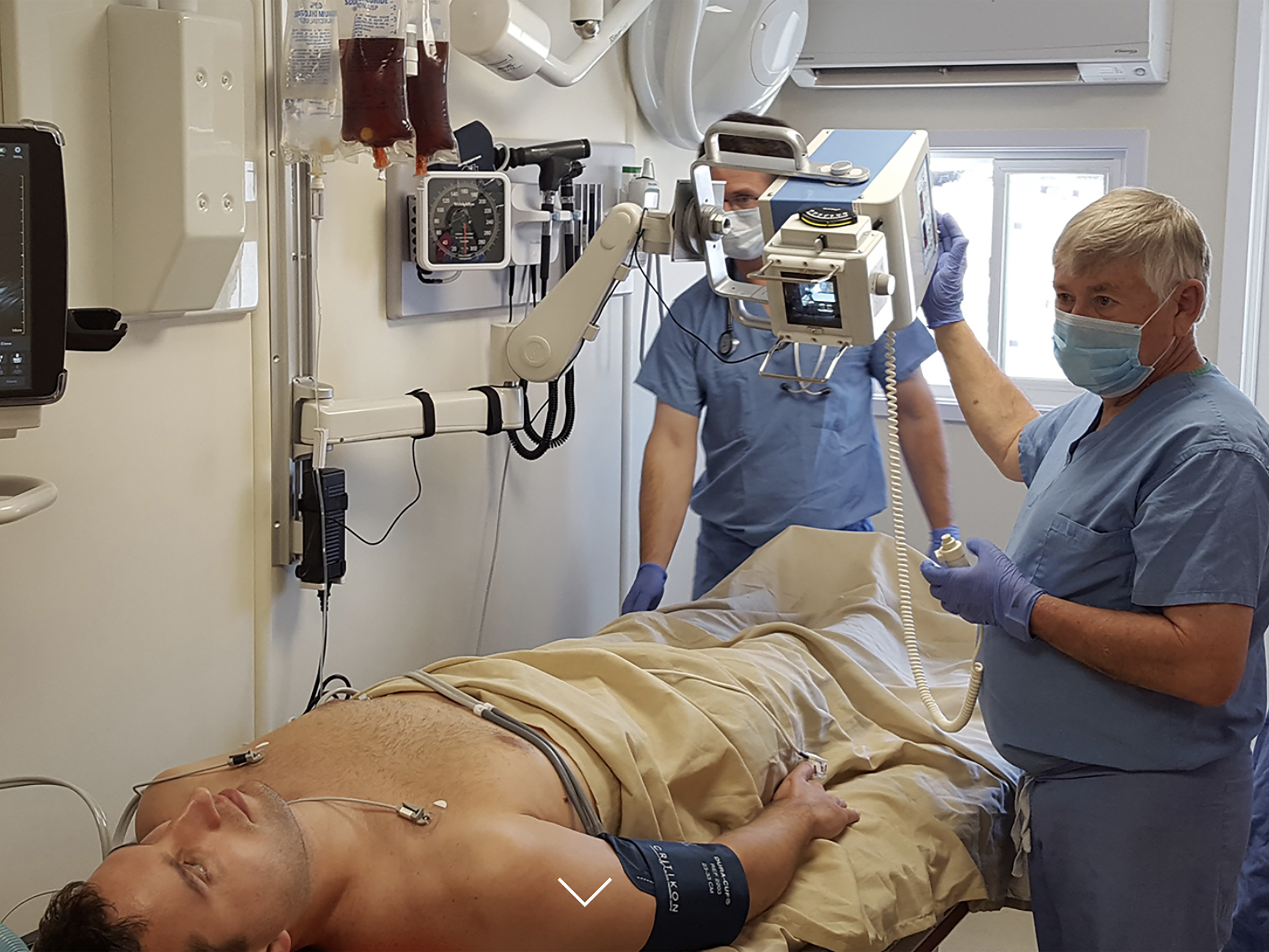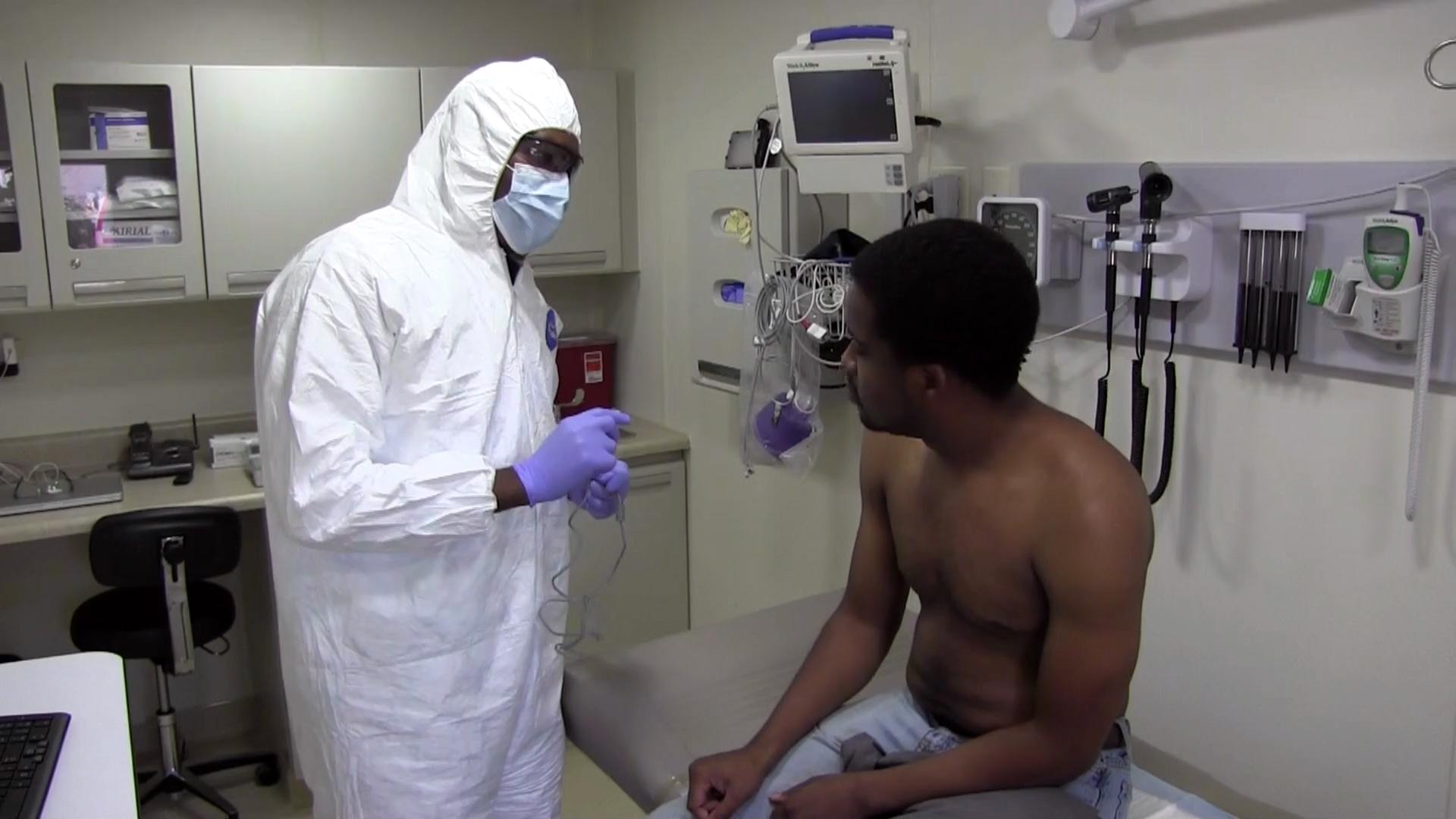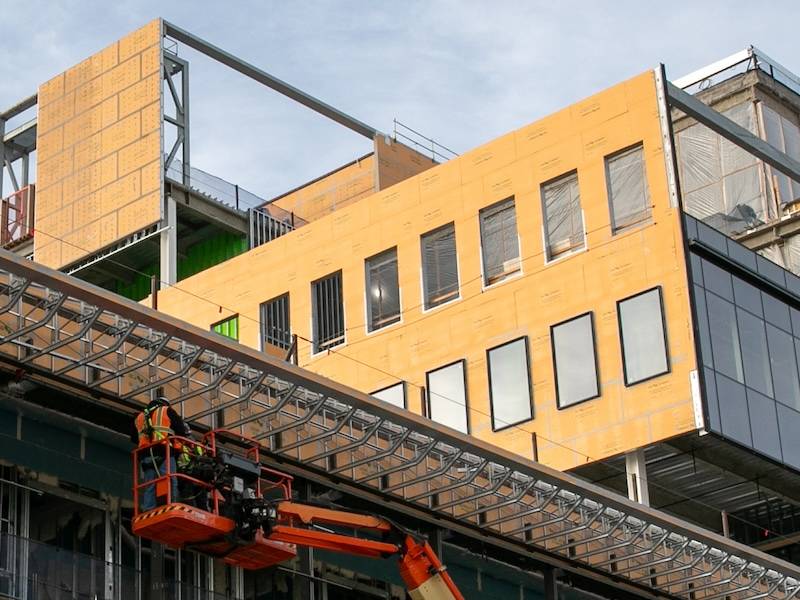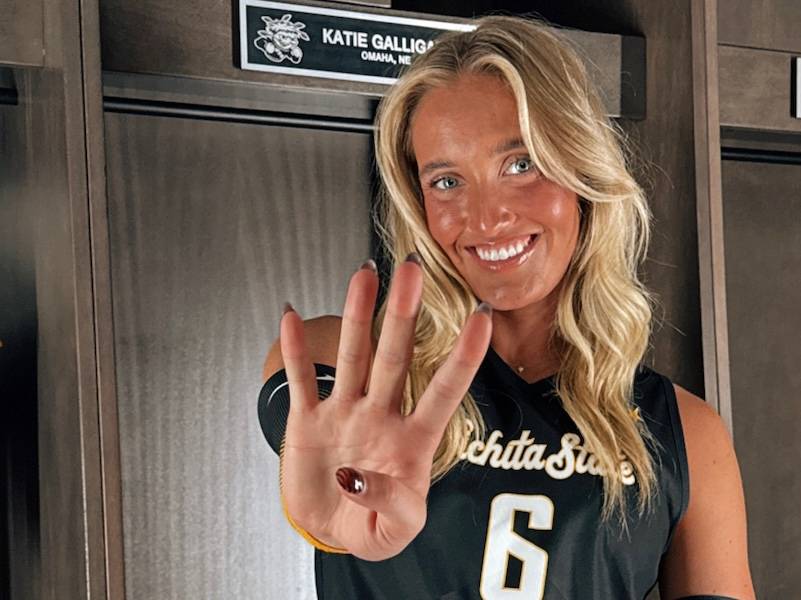Michael Wawrzewski is the epitome of the word humble.
“We're just regular Kansas people doing things to help people around the world,” he said.
His path in life has been anything but regular, and he’s traveled far beyond the borders of the Sunflower State to fulfill what he says is his calling.
Wawrzewski, a 1995 graduate of Wichita State University’s physician’s assistant program, has spent his career working to make health care more accessible to people around the world.
In 1998, just three years out of college, Wawrzewski started Hospitals of Hope, which was a medical mission organization that built clinics and hospitals in developing countries
“The first one we built in Cochabamba, Bolivia,” he said. “For about 16 years, that was the main focus of our organization, and PA students from WSU used to travel down as part of a rotation.”
But there were risks involved in setting up brick-and-mortar facilities in uncertain political climates.
“We could invest millions of dollars that at a moment’s notice could be nullified in the sense that a different political party could come into play. If they don't like the United States, all the money that we've invested in the country could be basically just snatched away,” Wawrzewski said.
Also, Wawrzewski’s family was growing. With two young children at home, he looked for a way to continue his mission from his home in Kansas.
“You want to be with your family,” he said, “but the passions that I had in youth are still there. Those things that really drive my life are there.”
Wawrzewski’s focus flipped from brick and mortar to containerize solutions — “something that would be more economical, and we could build it here in Wichita and get it around the world,” he said.
He started Clinic in a Can, which are customized containers for global health.
Each of the “cans” – which are actually shipping containers – house a sort of micro-clinic. They’re fabricated in Wichita and are customized medical units built within an 8-foot wide by 20-foot long container. Virtual tours of the Clinic in a Can modules on the company website feature primary care rooms, pharmacies, trauma units, maternal-infant care, radiology, laboratories, isolation units, and even morgues.
Put a few of the containers together, and you’ve got yourself a hospital suite. “We just shipped 11 containers to Mexico,” Wawrzewski said.
Clinic in a Can containers have found homes on every continent in the world, including Antarctica, and are used to treat those who might not have easy access to medical care.
“Part of the many years of traveling — whether it be Africa, the Caribbean, South America and Central America — the one recurring theme is that health infrastructure in these developing countries is either very old built by mission agencies back in 1950s or just nonexistent,” Wawrzewski said.
Innovations in technology have miniaturized what used to bulky equipment, making for efficient use of space inside Clinic in a Can’s micro-clinics.
“Medical diagnostic devices used to take up a lot of more space, and now they’re handheld or just a little bigger than a shoebox,” Wawrzewski said. “In the small space of a container, I can create a very advanced medical solution that can be transported anywhere in the world.”
Not only are these clinics space-efficient, most containers are solar powered, which makes them energy-efficient as well.
“The majority of our solutions are solar powered,” Wawrzewski said. “We’ve now created a turnkey solution for any country, whether it be a disaster situation or an outbreak situation. We make a fairly significant impact if we partner with trained medical providers.”
The COVID-19 pandemic has created additional need for Clinic in a Can containers as well.
“The majority of everything that we're producing right now is COVID-19-related, everything from embassies in Africa to Antarctica,” Wawrzewski said.
Clinic in a Can is busy building containers for COVID-19 testing, isolation and laboratories.
At the forefront of Wawrzewski’s mind and heart is always making health care accessible to the people who need it, keeping his profit margin just high enough to cover the costs to build the units.
“We’re trying to keep it cost effective for everybody, whether it be a nonprofit or the government,” he said. “Our skillsets are to create things in containers that hopefully will make an impact around the world and provide health care to people.”


 Courtesy
Courtesy Courtesy
Courtesy


